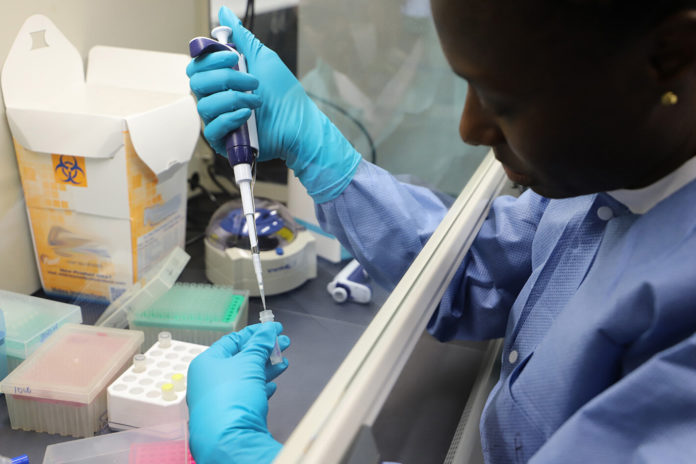|
Getting your Trinity Audio player ready...
|
Some experts have predicted more doom for the world, indicating that the corona virus outbreak is only a teaser of what is to be expected in the next decade.
The Founder and Executive Director, African Centre for the Constructive Resolution of Disputes (ACCORD), Vasu Gounden, Speaking during the opening of the 9th African Students and Youth summit organized by the All-African Students Union, (AASU) under the theme, “Building back better in a covid world, lessons from the covid-19 pandemic and the critical role of young people and global solidarity,” indicated that this generation will inherit one of the most serious challenges humanity has ever seen.
The Secretary General of AASU, Peter Kwesi Kodjie in his address noted that, this year’s 2day summit is being held virtually due to the covid-19 pandemic.
The summit is focused on measures to mitigate the effect of covid, especially on education. “ This year, we are joined by students and young people from all over the world due to our collaboration with organizations from different parts of the world to confront the challenges posed by the COVID-19 pandemic.” Peter indicated.
Mr. Kodjie assured students and youth in Africa and all over the world, that they will be acknowledged in due time for their relentless efforts to combat the pandemic. He said, “ I do hope that when the pandemic passes, we will remember what students and young people did to alleviate the toll of the COVID-19 Pandemic, sometimes at the peril of their lives.
Through the power of solidarity, AASU has worked together with colleagues from other regions under the coordination of the 100 Million Campaign to demand a fair share of the COVID-19 recovery funds to be allocated to those furthest left behind, and those truly in need of the funds, according to the AASU boss, Peter Kodjie.
Mr. Gounden who is pessimistic about the turn of events, said, nobody foresaw the pandemic, hence its devastating effects on global economy.
He said even though the pandemic is not the first pandemic and will not be the last, it still took the world by surprise when nobody anticipated such menace.
He again projected that, the frequency of the pandemic might be quicker, therefore steps need to be taken immediately to stem it.
“And as we move in into the future, the frequency of these pandemic might be quicker so you will be burdened with, and saddled with more challenges.
In addition to the health challenges, he noted that the World Bank, African Development Bank, and other leading organizations have indicated that Africa will go into recession and essential services like education will be denied the kind of resources that it needs to transform the lives of people.
He also expressed worry that Health care has been compromised because of the need to respond urgently to the covid 19 crisis, which will have devasting repercussions in the next decade. He said, “we have not been able to respond to primary vaccination for polio and measles, smallpox and these are going to have repercussions for decades to come where an entire generation will not have been vaccinated because we have to respond to this crisis”.
Other speakers also talked about the need for African countries to unite and advocate for a sustainable means to fund education which already is facing several challenges.
They proposed interventions like expanding the tax to GDP ratio by at least 5 per cent within a 5year period as suggested by the IMF.
Mr. Dennis Sinyolo, Chief Regional Coordinator for Africa, Education International (EI) Ghana, In his submission, indicated that distance education provided due to the covid-19 pandemic has been ineffective.
He said over 80% of teacher unions from 34 African countries have reported that E learning measures put in place by governments to reduce the effects of covid on education has not been effective due to poor internet connectivity and lack of resources.
He tasked governments to carryout equity audit to know who is being left behind and target the marginalized to get them in school.
Also, he said, at least 20% of budgetary allocation should be set aside for the improvement of the educational sector.
Dr. Graeme Atherton, Director of the National Education Opportunities Network (NEON), UK, in his contribution, emphasized on the need for prioritization of education, and indicated that advocacy is crucial in achieving this feat, particularly in Africa where there is huge gap in education.
Mr. Gounden lauded AASU for the initiative and its other interventions. “I have great hope because when I look at the All-Africa Students union, the level of your organization, the level of your innovation, the level of your creativeness, I have huge hope that you will be able to meet these challenges of the future”.
Every year, AASU convenes the largest students and Youth gathering on the continent, under the banner “AFRICA STUDENTS AND YOUTH SUMMIT” (ASYS). The summit is the flagship annual event of the All-Africa Students Union to that brings young people in the diaspora to deliberate on the crucial issues affecting the state of education and the common future as young people.
Source: Daily Mail Gh





